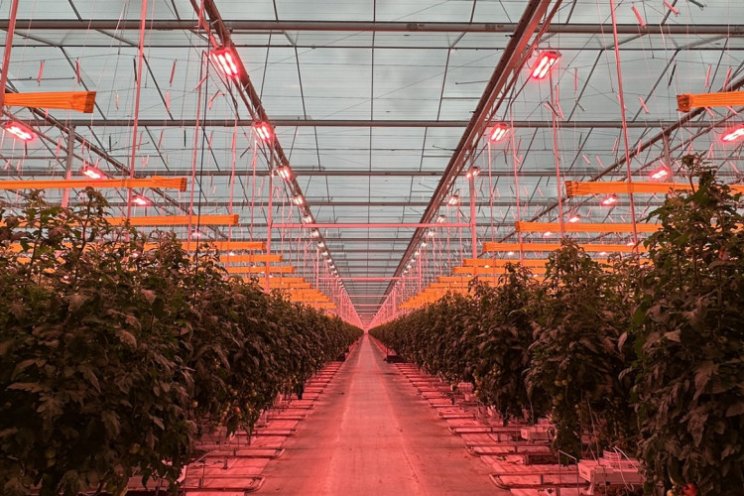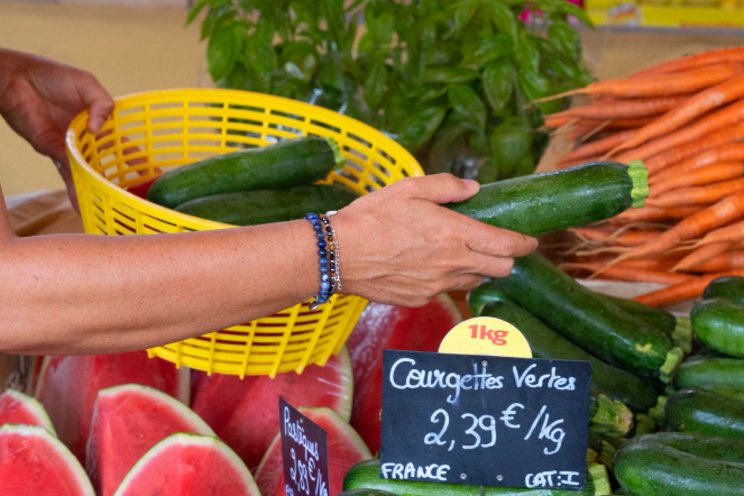Fish poop to grow crops year-round is expanding
Added on 29 April 2021

Springworks Farm, the largest aquaponics farm in Maine and one of the largest in the United States, aims to be a local organic alternative to lettuce and other greens trucked from California and Arizona to the East Coast.
It already produces one million heads of lettuce and up to 60,000 pounds of tilapia each year, and plans to have its third greenhouse completed in May. The technique uses less water and can produce up to 20 times more lettuce in an acre as conventional soil gardening, according to Springworks.
But some doubt that the aquaponics method of growing can be expanded greatly. It requires expensive infrastructure investments and relies on a complex indoor ecosystem of fish and plants that live in a delicate balance of water chemistry, temperature, light and oxygen. Consumers unfamiliar with it may question why it is priced a bit higher than conventional lettuce.
But Trevor Kenkel, founder and president of Springworks, said the farm's ambitious plan can be achieved with a careful balance of customer and business growth. The farm raised $1.6 million from investors to build a second greenhouse in 2018.
"We have been very intentional about matching our growth plan with the maturity of the business," Kenkel, 26, said. "I think that's where other folks made mistakes, in scaling before they actually figured out the business."

Cara Stadler (left), owner and chef at Canopy Farms and its partner Tao Yuan restaurant in Brunswick, and Kate Holcomb, director of the Canopy Farms rooftop aquaponics farm. Credit: Courtesy of Canopy Farms
Kate Holcomb, director of Canopy Farms in Brunswick, agreed. Her 3,000-square-foot rooftop aquaponics operation sells its fish and greens to partners, including the Tao Yuan restaurant and soon-to-be-opened Zaoze Cafe and Market, both in Brunswick. She said having those guaranteed buyers is a major advantage for Canopy.
"The biggest thing is how you take something with tanks and fish and plants and grow something that's going to make enough money to cover your costs and then figure out how to expand," said Theo Willis, associate adjunct researcher at the University of Maine. The university has a small aquaponics operation for teaching students.
Holcomb said it's important to have backup systems and to plan for potentially catastrophic events like power outages, because fish without aeration can die within an hour.
"If something goes wrong, it can go really wrong," she said. "It is challenging when you're balancing multiple living systems."
Springworks and Canopy Farms are the only two aquaponics farms in the state registered with the Maine Department of Inland Fisheries and Wildlife, down from a handful of aquaponics farms a few years ago.
The two companies have modernized the aquaponics technique, which dates back to the Aztecs, who floated rafts of plants on water bodies so fish could fertilize them. Aquaponics differs from the better-known hydroponic farming that adds chemical fertilizers to water to grow the plants. Kenkel said aquaponics does not need the added fertilizers because the fish excrete ammonia, which bacteria turn into nitrite in the aquaponic system. Different bacteria turn the nitrite into nitrate, which the plants absorb for growth.
Aquaponics saw a resurgence in the 1970s and 1980s among organic and aquaculture enthusiasts. Henkel attributed much of his current growth to increased orders from supermarkets in response to the coronavirus pandemic. He currently sells everything he can grow.
Springworks initially sold to the food service industry through wholesalers including Sysco and Performance Food Group and made its own deliveries to restaurants. But when those orders dropped off during the pandemic, it pivoted most of its focus to retail sales. It sells in 190 Hannaford supermarkets in New England and New York and 30 Whole Foods stores in the northeast.

Clockwise from left: Lettuce grows on floats and draws nutrition from water with filtered fish waste below, a technique called aquaponics, at Springworks Farm in Lisbon; Trevor Kenkel, founder and president of Springworks, inside one of the greenhouse, where he grows mostly various kinds of lettuce but is trying new crops such as parsley; Kenkel stands near the existing greenhouses in Lisbon. Credit: Lori Valigra / BDN
Hannaford produce manager Mark Jewell said the close proximity of Springworks to the supermarket chain's South Portland distribution center and the year-round availability of the lettuce made it an easy decision to buy the Springworks organic lettuce rather than field-grown lettuce shipped across the country.
The farm also sells its mature fish to Harbor Fish in Portland, which resells them for eating. Kenkel said he is in talks with Bristol Seafood, also in Portland, for a processing agreement that would give Hannaford exclusive access to the 60,000 pounds of tilapia the farm produces each year.
Kenkel founded the company in 2014 as a freshman at Bowdoin College in Brunswick, with backing from family and some ongoing "committed investors."
Springworks plans to complete its third greenhouse on its 168-acre location in May, adding 40,000 square feet to the current two greenhouses, which total 24,000 square, and the rest by 2026.

Springworks Farm in Lisbon plans to add 500,000 square feet of farming operations by 2026. Credit: Courtesy of Springworks Farm
The farm will partially fund the $4 investment in the third greenhouse with $300,000 it received from a bond approved by voters in June 2017. That greenhouse will triple its revenue over the next several months, Kenkel said. He declined to reveal exact revenue or profit figures. Springworks has 20 employees and plans to add 15 when the new greenhouse is completed.
Springworks grows bibb, romaine, leaf lettuce and salad mix, and plans to branch out into other greens, including parsley, into what Kenkel said is a growing market.
"Soil-less growing is an up and coming industry," Willis of the University of Southern Maine agreed. "There are some sizable investments in it, and people are going to start seeing more and more of these products on the shelves."
Source: Bangor Daily News
Header Photo: Trevor Kenkel, founder and president of Springworks Farm in Lisbon, in one of the greenhouses where lettuce grows on foam floats above water fertilized with tilipia waste. Credit: Lori Valigra / BDN
Source: Bangor Daily News
More news















